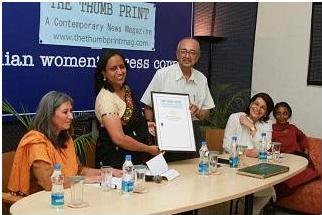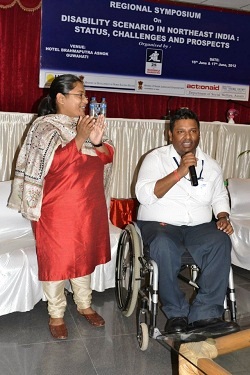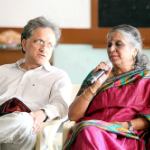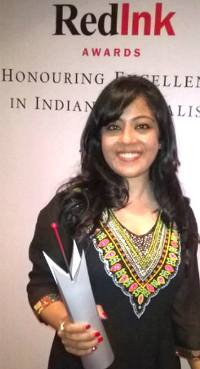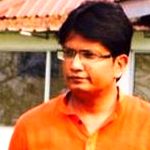The eradication of poverty is the greatest challenge facing the world today and therefore any sustainable development effort would be incomplete without addressing this issue. The very process of integrating disability in general and women’s disability in particular as a category of analysis and system of representation deepens, expands and challenges sustainable development theory. The incorporation of disability and disabled will surely lead to the broadening of the range of the sustainable development theory and make it more representative, egalitarian and wider in scope and reach. Any sustainable development mechanism should try to address the issues of education, employment vocational training and social inclusion of the disabled men and women in order to break the vicious circle of neglect, isolation, and poverty of the people faced with disability.
Unless disabled people are brought into the sustainable development framework it will be impossible to make development truly inclusive. The sustainable development approach should also see to it that that the disabled people have the chance to take command of their own lives, rather than be passive recipients of care or charity. The inclusion of the rights-based approach to development which has been increasingly adopted by the government and international development agencies throughout the world will increase the relevance, applicability and reach of the sustainable development approach. It is clear that unless disability is included in the sustainable development framework, the prospects for achieving the goal of securing the development for all will be substantially diminished.
Equalization of opportunities should be made a basic concept in the principle of sustainable development. Through this process the various systems of society and the environment such as services, information, and documentation should be made available to all – particularly to those who are excluded by social, economic, cultural, and political barriers. It is only through universal access that the all round and sustainable development of the disabled is possible. Access in its fullest sense refers to physical access, communication access, and social access to facilities, services, training, and jobs. Physical access means that people with disabilities can, without assistance, approach, enter, pass to and from, and make use of an area and its facilities without undue difficulties.
It is the aspiration of every disabled person – to be able to have friends, to go to school, to have the qualifications and skills for a good job and then do the job well, to be independent, to be respected, to give and receive love. In other words, they want to have a life like other men and women. There is an urgent need to counter the belief that a disabled person is an object of pity who always needs assistance from somebody else. Though, the government has framed policies and laws like the National Policy for Persons with Disability, 2005 and the Persons with Disabilities Act, 1995 and has launched schemes for the general upliftment of the disabled and to improve their living conditions, the efforts are far from satisfactory and much more needs to be done in this regard. Also, merely striving for the general improvements in living conditions will not be enough.
Bringing the disabled into the purview of sustainable development theory is crucial for the all-inclusive developmental efforts. Specific steps are required, not only for prevention, but also to ensure that people with disabilities are able to participate fully in the development process, obtain a fair share of the benefits, and claim their rights as full and equal members of society. To increase the visibility of disabled, it is the responsibility of the state to include them in any sustainable development paradigm and ensure that the plans and programmes are disabled sensitive. A major thrust at the policy level is necessary to ensure equity and justice for them.
The sustainable development approach if applied with complete sincerity and dedication and accountability would ensure that the most marginalized, deprived and often forgotten section of our population are brought into the mainstream. The disability in general is seen by planners and policy makers as welfare rather than developmental and rightful, or as peripheral rather than central to the development process. For the all round inclusive development process which is the most important requirement of the sustainable development framework it should be made sure that differently-abled are provided equal opportunities to excel in their desired field and do not continue to remain at the periphery of the society.








